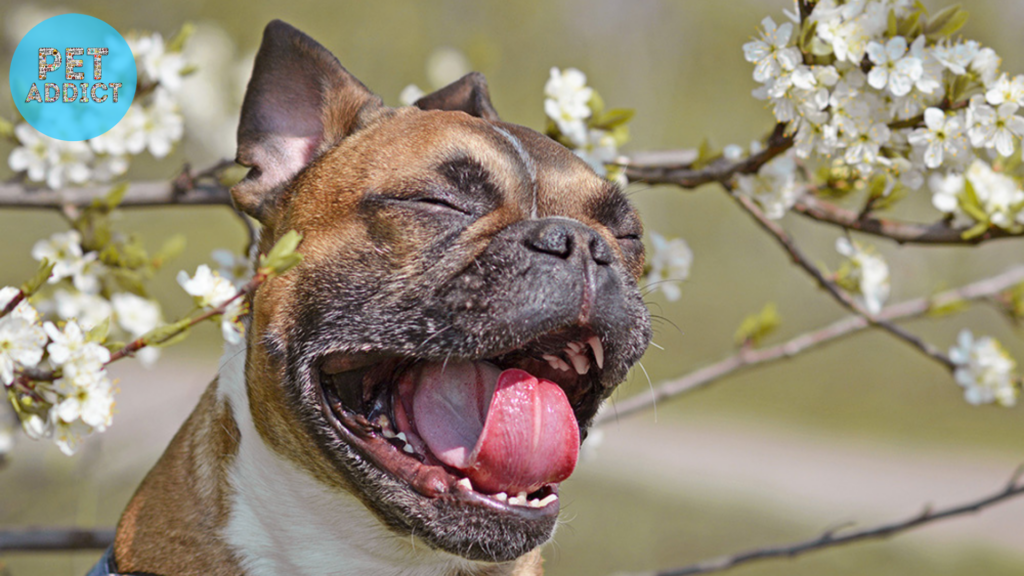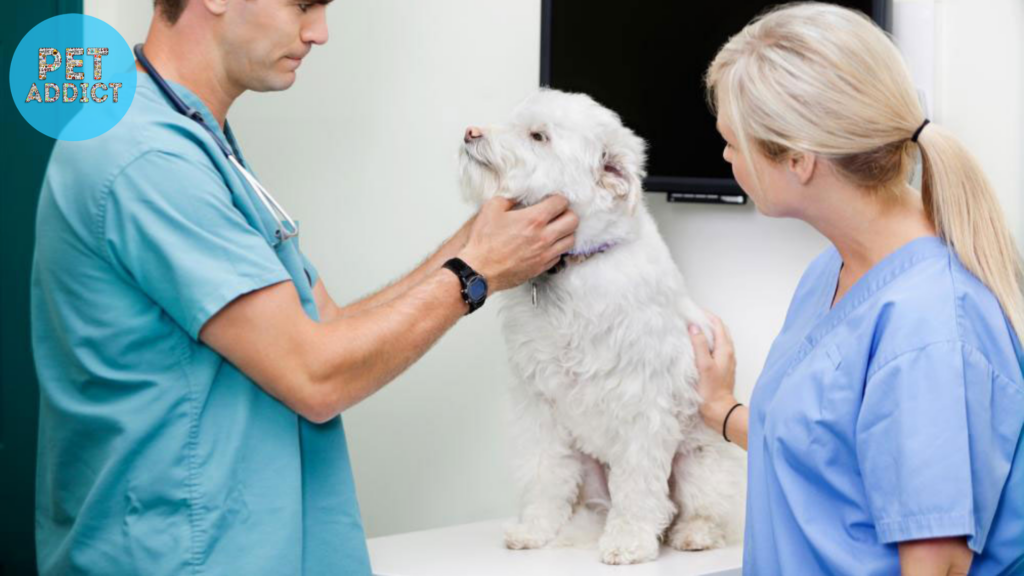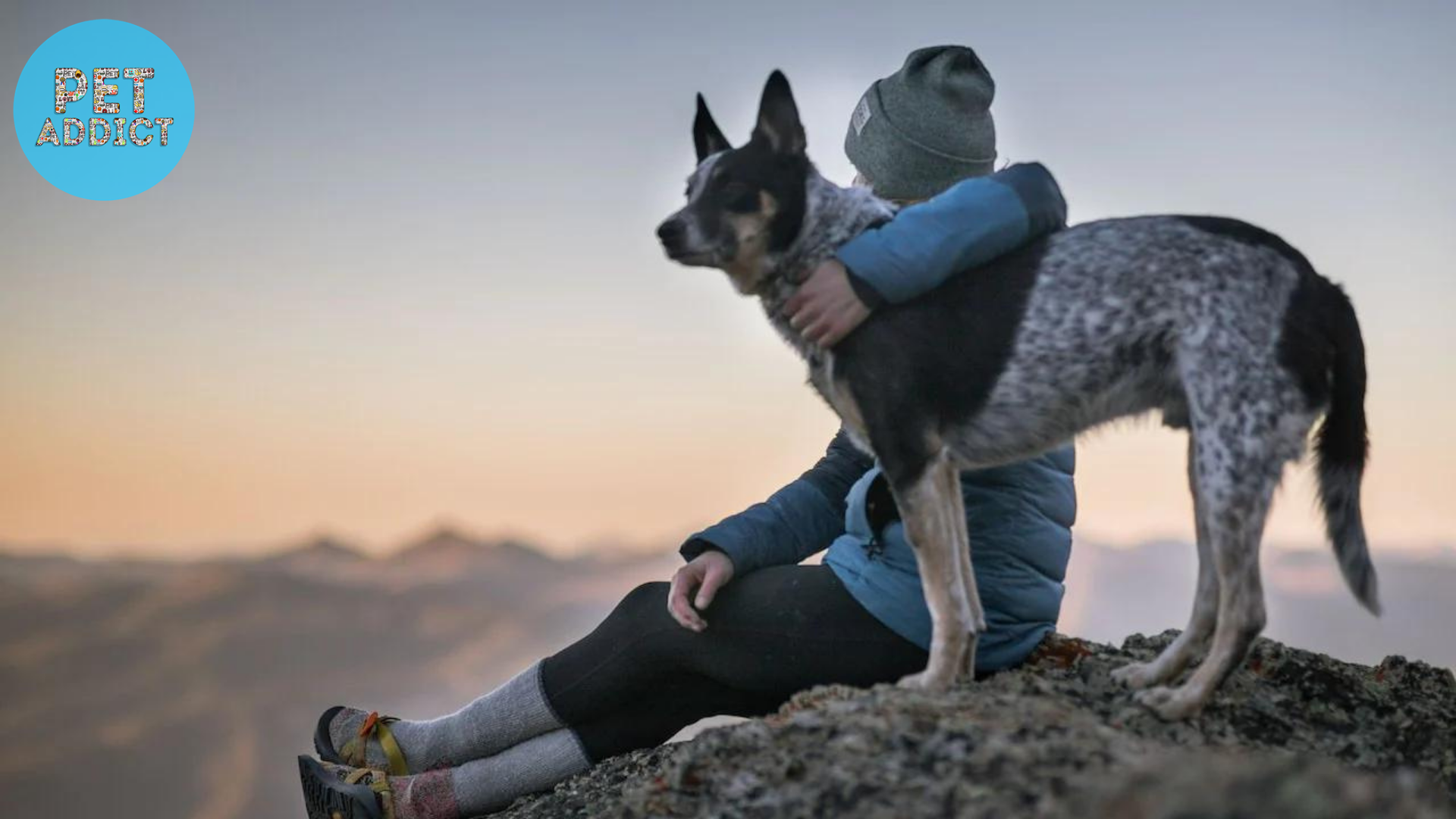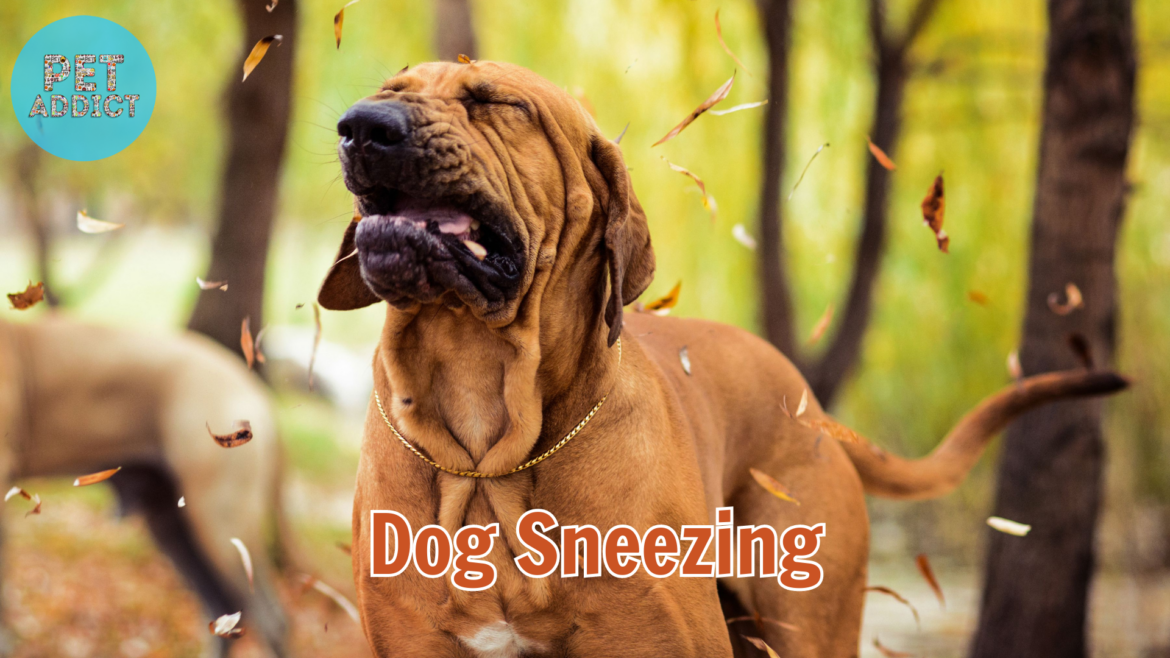As dog owners, we are familiar with the various sounds and behaviors our furry companions display. From barking and tail wagging to playful antics, dogs have unique ways of communicating with us. One such behavior that may sometimes catch our attention is dog sneezing. While it may seem amusing when your dog lets out a cute sneeze, it’s essential to understand that sneezing in dogs can have various underlying reasons. In this comprehensive guide, we will explore the common causes of dog sneezing, when it’s considered normal, when to be concerned, and how to manage sneezing episodes to keep your canine friend healthy and happy.
PetAddict.net – The best place where you can find everything about your pet!
Why Do Dogs Sneeze?
Sneezing is a natural and reflexive action that helps dogs clear their nasal passages from irritants or foreign objects. Similar to humans, dogs sneeze to expel particles such as dust, pollen, or perfumes that may have entered their noses. Some dogs may also sneeze as a form of playful communication during playtime or when interacting with other dogs.

However, sneezing in dogs can also be an indication of underlying medical conditions or health issues. Understanding the different reasons behind dog sneezing can help you identify when it’s normal and when it warrants further attention.
Common Reasons for Dog Sneezing
- Irritants in the Air: Dogs are exposed to various environmental irritants, including dust, pollen, household cleaners, and strong perfumes. Sneezing helps them clear these irritants from their nasal passages.
- Nasal Irritations: Sometimes, dogs may encounter small foreign objects like grass or dirt that can cause irritation in their noses, leading to sneezing.
- Playful Sneezing: During play or interaction, some dogs may sneeze as a playful gesture, signaling their enjoyment and excitement.
Medical Conditions and Dog Sneezing
While occasional sneezing is typically harmless, persistent or severe sneezing can be a sign of an underlying medical condition. Some medical reasons for dog sneezing include:
- Respiratory Infections: Viruses, bacteria, and fungal infections can cause respiratory issues in dogs, leading to sneezing, coughing, and nasal discharge.
- Dental Issues: Dental problems, such as dental abscesses or tooth root infections, can cause referred pain and sneezing.
- Nasal Tumors: Though uncommon, nasal tumors can lead to persistent sneezing and require immediate veterinary attention.
When Is Dog Sneezing a Cause for Concern?

Determining whether your dog’s sneezing requires veterinary attention depends on various factors. While occasional sneezing is generally not a cause for concern, several signs and symptoms can indicate a more serious issue:
Observing Other Symptoms
- Discharge from the Nose: Pay attention to the color and consistency of any nasal discharge. Clear or slightly cloudy discharge is generally less concerning, but green or yellow discharge may indicate infection.
- Coughing and Wheezing: If your dog is experiencing difficulty breathing, coughing, or wheezing, it may be indicative of respiratory distress.
- Lethargy and Loss of Appetite: Changes in energy levels and appetite may suggest an underlying illness.
Persistent or Severe Sneezing
If your dog’s sneezing is frequent, intense, or doesn’t improve over time, it’s essential to seek veterinary attention. Chronic sneezing may be a sign of an ongoing issue that requires medical evaluation.
Behavioral Changes
Pay attention to any changes in your dog’s behavior. If your dog becomes unusually quiet, avoids social interaction, or shows signs of discomfort, it may indicate an underlying problem.
First Aid and Home Remedies
For mild sneezing caused by irritants, you can provide some first aid and home remedies to help your dog find relief:

Managing Mild Sneezing at Home
- Ensure a Clean Environment: Regularly dust and vacuum your home to reduce irritants that may trigger sneezing.
- Keeping Your Dog Hydrated: Ensure your dog has access to clean and fresh water at all times to stay hydrated.
- Nasal Irrigation: Use a saline solution to gently clean your dog’s nasal passages. Consult your veterinarian for proper guidance on how to perform nasal irrigation.
Natural Remedies for Allergies
If your dog is prone to allergies, consider using natural remedies to alleviate their symptoms:
- Herbal Supplements: Certain herbs like quercetin, licorice root, and nettle leaf have anti-inflammatory properties that may help with allergies.
- Local Honey: Some dog owners believe that locally sourced honey can help build immunity to local allergens. However, this remedy is controversial, and its effectiveness varies.
When to Seek Veterinary Care
If your dog’s sneezing is persistent, severe, or accompanied by other concerning symptoms, it’s crucial to seek veterinary care:
Diagnostic Tests
- Physical Examination and Health History: Your veterinarian will perform a thorough examination to assess your dog’s overall health.
- Radiography and Imaging: X-rays and imaging tests may be conducted to identify any abnormalities in the nasal passages.
- Rhinoscopy: A rhinoscopy involves inserting a small camera into the nasal passages to visualize any issues or abnormalities.
Treatment Options
Treatment for dog sneezing will depend on the underlying cause:
- Antibiotics and Antifungals: If a bacterial or fungal infection is identified, your veterinarian may prescribe appropriate medications.
- Dental Procedures: Dental issues will require dental procedures such as tooth extraction or root canal treatment.
- Chemotherapy or Radiation: In the case of nasal tumors, treatment options may involve chemotherapy or radiation therapy.
Preventing Dog Sneezing
While some causes of dog sneezing may be beyond your control, there are steps you can take to minimize its occurrence:
Maintaining a Clean Environment
Regularly clean and dust your home, especially areas where your dog spends most of their time. Using air purifiers can also help reduce airborne irritants.
Minimizing Exposure to Allergens
Identify potential allergens that may trigger sneezing in your dog. During high allergy seasons, limit outdoor activities and avoid exposure to known triggers.
Conclusion
In conclusion, dog sneezing can be a natural and harmless reflex, but it can also be indicative of underlying health issues. Understanding the reasons behind your dog’s sneezing and monitoring their overall health and behavior are crucial in determining when to seek veterinary care. By providing a clean and allergen-free environment, minimizing exposure to irritants, and staying vigilant for any changes in your dog’s health, you can help ensure your furry companion leads a healthy and happy life, free from unnecessary discomfort and respiratory issues.




